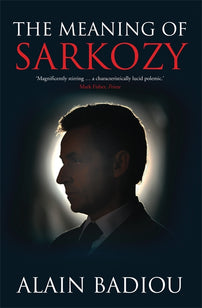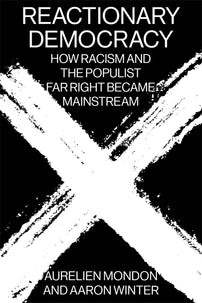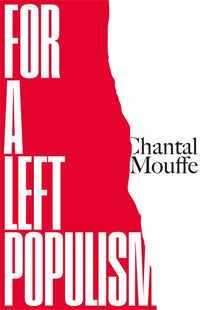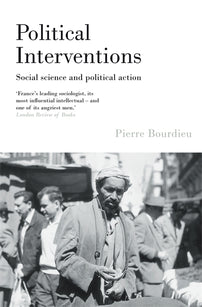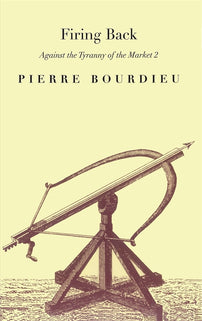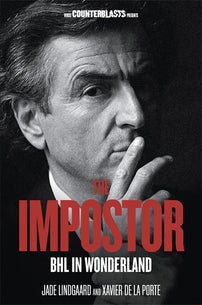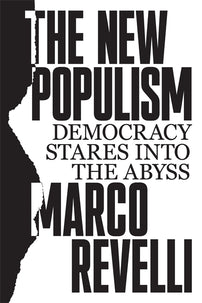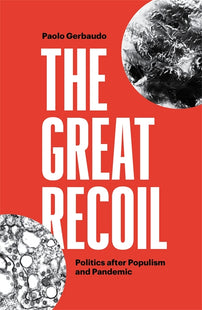‘Mélenchon has mobilised an electorate that had stopped voting’
Didier Eribon, sociologist and supporter of Jean-Luc Melenchon's campaign, on the causes of the rise of the far right, and the challenges facing La France Insoumise in durably re-establishing left ideas.

The sociologist Didier Eribon, who supported Jean-Luc Mélenchon’s campaign, analyses the causes of the rise of the far right, and the challenges facing La France Insoumise in durably re-establishing left ideas.
In Returning to Reims (Fayard, 2009/MIT Press 2013), recently adapted for the cinema by Jean-Gabriel Périot, the philosopher and sociologist Didier Eribon analysed, through the intimate story of his own family, the shift in the working-class vote from Communism to the National Front (FN) and subsequently the National Rally (RN). He sees the result of the first round of the presidential election as confirming a ‘class vote’ in favour of the far right.
The causes of this shift include the Socialist Party (PS)’s conversion to neoliberalism, which ‘created anger, abstention, and finally a vote against it’ by the working classes it was supposed to represent. This was the subject of his 2007 book D’une révolution conservatrice et de ses effets sur la gauche française. The pitiful score of the PS (1.75%), he explains, marked ‘the culmination of a process that began in the early 1980s’ and led to the election of Emmanuel Macron in 2017.
Eribon believes, however, that the dynamic of Jean-Luc Mélenchon, popular in working-class neighbourhoods, may be able to stymie the ‘programmed’ annihilation of the left.
The main conclusion of this first round of the presidential election is that the far right obtained more than 30% of the vote, and that it is now in the second round for the second time in a row. How do you interpret this phenomenon that now structures French politics?
I think that, unfortunately, the far-right vote is well established. This happened gradually, beginning in the mid 1980s. At first, it was largely a protest vote. When I asked my mother why she voted for Le Pen for the first time, she said: ‘To fire a warning shot.’ The second time, it was probably to fire a second warning shot. And, the third time, it became the natural vote that replaced the old one for the left.
This means that a whole perception of the world has changed. Everyday conversation, relationships to other people, to political parties, to one’s own personal aspirations. Voting is not just an electoral act. It is also a kind of culture in the broadest sense of the term. As I said in Returning to Reims, in my family we didn’t just vote for the French Communist Party (PCF): it was a whole culture that went with it. We spoke the language of the Communist Party. There was a Communist culture, which has disintegrated, leaving individuals in a state of political and ideological abandon.
This is, of course, linked to the transformation of the world of work. When my mother was a worker, in the 1970s and 1980s, at the Verreries Mécaniques Champenoises, there were was a staff of 700, of whom 500 were members of the CGT. It was a force to be mobilised, and often was mobilised, a considerable collective force. The factory closed in the 1980s. The children and grandchildren of these workers did not find work in this type of factory, all of which closed one after the other. When they are not unemployed, on benefit or in temporary jobs, they now often work in logistics, in Amazon warehouses. Now, if you are a delivery driver, if you work in a warehouse, where unionisation is difficult and risky, it is obvious that you no longer have the same relationship with politics. You used to be a collective force, you have become an isolated individual.
People deprived of this political culture, and the mode of expression that it gave them, have individually and collectively reconstituted another culture and another means of expression: voting for the FN, then the RN. It is a way for them to collectively constitute themselves as political subjects. This is how Marine Le Pen obtained impressive scores in the Aisne, Pas-de-Calais, Nord, Moselle, Meurthe-et-Moselle, etc., i.e. the former working-class and mining bastions that had been the cradles of the French workers’ movement, and are now de-industrialised, precarious and desperate.
If this is another form of working-class vote, a vote of the working classes, we can say that it is a class vote. What’s worrying is that it is this class vote that has become an established feature of the political landscape. We have to try to understand why. And we can’t understand what’s going on if we don’t look at the history over time, going back to the end of the 1970s.
In your 2007 book, D’une révolution conservatrice et de ses effets sur la gauche française, you situate the origin of what we are experiencing in the ideological turn taken by the Socialist Party in the 1980s. Do you think that with the PS score of 1.75% in this election we have reached the end of this political sequence?
We are witnessing the end of a process that began in the early 1980s. The critical, political and intellectual momentum certainly declined due to structural effects after the effervescence of the 1960s and 1970s. But there was also an intellectual initiative implemented by think tanks whose explicit objective was to undo everything that made the left what it was, by dismantling left-wing thought, critical thought: Foucault, Bourdieu and Derrida were already its main targets.
Circles were set up like the Fondation Saint-Simon, created by François Furet, with academics, industry and banking bosses like Roger Fauroux, Jean Peyrelevade, journalists, etc. They actively organised this shift to the right in the political-intellectual field by fighting left-wing thought; François Furet did not camouflage himself, he referred openly to Raymond Aron. The Socialist Party was one of the actors and vectors of this organised shift to the right. If you replace the notion of social class, the idea of social mobilisation, and the basic idea that a left-wing party must be based on these realities and processes, and must represent workers, the precarious, the unemployed, and carry their voice into the public space – if all this is ignored, rejected and combatted ideologically, who will recognise themselves in these left-wing parties?
Pierre Bourdieu once said to me in the mid 1990s: ‘If a pure product of the ENA [École nationale d’administration] such as François Hollande can get elected in Tulle, this means the FN will be at 20% in ten years’ time.’ When technocrats elected under the PS label in working-class regions developed neoliberal policies that destroyed the lives of the people who elected them, it created anger, abstention, and ultimately a vote against these people. If the left-wing parties no longer represent, support or speak in the public sphere for the workers and the precarious, then those who are thus abandoned will no longer vote for the left, they will abstain or vote FN. I observed how almost my whole family went from voting Communist to voting FN in less than ten years. While writing Returning to Reims, for example, I realised that it had become as natural for one of my brothers to vote FN as it had been for my parents to vote Communist in the past. There was no transmission of a political heritage, except a heritage of revolt, of anger against the situation of the subaltern, and of voting as a collective means of protest. The content of the vote has changed, but the gesture is the same.
If the left had been on the same side as Bourdieu at the time of the great strike of December 1995, and not on the side of the circles that denounced it and insulted the strikers and the intellectuals who supported it, if it had supported and represented the social movements instead of fighting them, we wouldn’t be in this situation.
Journalists also bear a share of responsibility. Libération used language against Bourdieu that it did not even use against Le Pen. In Sam Friedman and Daniel Laurison’s The Class Ceiling: Why It Pays to Be Privileged, there is a table that shows that the professions most restricted to the upper classes are medicine and journalism. This homogeneity is bound to have consequences. It clearly explains the support of the press for Emmanuel Macron in 2017: the affinity of habitus outweighs surface differences.
[book-strip index="1" style="display"]Could we actually have experienced an Italian-style scenario in France, i.e. the disappearance of the left?
This was certainly the programme. The Socialist Party gave up a long time ago on keeping left-wing thinking alive. When my book on the conservative revolution was published, Christian Paul told me that he wanted to create workshops to reinvent such thinking. The first guest was Alain Finkielkraut, and the second was Marcel Gauchet. To reinvent the left with such reactionary ideologues! You can see where we were.
It’s clear that something was going on at that time. The Socialist Party became more and more dissociated from both the working classes and from left-wing intellectuals. It became a party of ENA graduates whose intellectual references are very, very far to the right. This started under Jospin, and the culmination of all these processes was the presidency of Hollande, elected against Sarkozy. Hollande’s deputy secretary-general was Emmanuel Macron, who then became his Minister of the Economy.
In retrospect, we can say to ourselves: if the Minister of the Economy of a government that called itself left-wing was Emmanuel Macron, how could it have been possible for the working classes to recognise themselves in the PS? The divorce already well underway would become a chasm. It was obvious. Hollande couldn’t even run again. Then the right supported Macron, along with all the Socialist hierarchs concerned for their positions: we saw Olivier Véran and Muriel Pénicaud from the centre left governing in tandem with Bruno Le Maire and Gérard Darmanin from the right. If they can cohabit in the same government, it is quite simply because they think the same thing. They are the same: representatives of the upper classes who look down on the lower orders and impose their decisions. All this has provoked a deep sense of revolt, even fury, among left-wing voters.
The collapse of the Socialist Party is the result of this right-wing trend. And the logical outcome of this sequence is Macron, the ideological child of François Hollande and the neoliberal technocracy that he had publicly espoused by enacting the labour law and other measures of the same kind. Macron is the embodiment of this historical sequence. He has no particular talent; he is an effect, a product of these historical processes. There is no longer any need for a neoliberal PS, an oxymoron expressed in his own person. And the real right and the false left are united in a common programme.
This was the project of the Saint-Simon Foundation in the 1980s. Bringing together right and left in the ‘centre’, which in fact means on the right. Basically, Furet and were the predecessors of the ministers of education and higher education Blanquer and Vidal, with their assault on critical thinking, which they saw as a threat to ‘social cohesion’, the ‘social pact’, ‘governmental rationality’, ‘economic modernity’, and all those notions that belong to a bourgeois, conservative and authoritarian view of political life. Bourdieu was their main target. Today we see the fine result of their deleterious actions.
Has Jean-Luc Mélenchon succeeded in permanently derailing this Italian-style scenario that had been planned since the 1980s? Is he in a position to loosen the stranglehold that locks us in to the alternative between the far right and the extreme neoliberalism of Macron?
This is the other most striking phenomenon of this 2022 election: the dynamic that Jean-Luc Mélenchon has been able to create by mobilising energies on the left, on a worked-out programme. This success is not enough, but it is still incredible. We have to ask ourselves what this could mean for the future possibilities of recreating a left-wing dynamic in the future.
Sartre once said in an interview that there was a powerful collective force for social transformation in May 1968, which collapsed when everyone went to the polls on 30 June. The Gaullist regime was saved by the votes of the millions of workers whose strikes had so forcibly shaken it. Basically, the Socialist Party of the 1980s, 1990s and 2000s dreamed, like the right, of a permanent 30 June, i.e. the end of social protest and the submission of the governed to the decisions of those in power. It is urgent and necessary to oppose to this a permanent ‘May 68’ or at least a ‘spirit of 68’.
I think that the social movements of recent years have reinvented a collective dimension of self-perception. The violence of the repression suffered by these movements has accentuated this collective dimension. And, this time, Mélenchon was able to convey the idea that a left dynamic was still possible – in demonstrations, but also through voting, seen as an act of regrouping, of reconstituting a force that could count, that could have weight. We are no longer the objects of political decisions, we are once again subjects.
Olivier Masclet wrote an important book on the way that the left never managed to interest itself in the energies of working-class neighbourhoods. The Left scorned and forgot the inhabitants of these neighbourhoods. They no longer vote. Mélenchon knew how to respect them, defend them, support them and make them believe that they could make themselves heard in the public arena through their vote.
We see what happened in Marseille, Roubaix, or Seine-Saint-Denis: a good part of the vote in working-class neighbourhoods went to him. He mobilised an electorate that no longer voted. Despite all the criticisms I can make of him, he has managed to recreate a left dynamic.
But is it sustainable? Mélenchon scored high in the former red belt of the Parisian suburbs, where the PCF no longer exists. But La France Insoumise (LFI) does not have the party structures of the PCF in its heyday.
He is surrounded by a team of very talented people, whose work and commitment I admire. Now, it’s true that they don’t control many town halls, nor do they have the stable structures that the PCF or the PS used to have in the working-class regions of the North. I imagine that La France Insoumise are concerning themselves with this.
When meetings, demonstrations, elections come to an end, it is necessary to make the mobilisation last in what Sartre called the ‘pratico-inert’, as Geoffroy de Lagasnerie has reminded us in his recent book Sortir de notre impuissance politique. That is to say, in everyday life, in the workplace, in neighbourhoods, etc. It’s not easy. And I’m not giving lessons. I know that it can’t be decreed from above. It’s also necessary for people to want it and be able to do it, when they have more urgent daily concerns. The working-class vote (white and with only secondary-level education) in the North and East went more to Marine Le Pen, whereas the vote of young urbanites in university towns (Nantes, Grenoble, etc.) went to Mélenchon. These are substantial blocs in both cases, and the question for the left is how to bring them together and reconcile them.
Doesn’t this composition of its electorate actually vindicate the Terra Nova report published in 2011 (‘Gauche: quelle majorité électorale pour 2012’), which said: ‘The working class is no longer the heart of the left-wing vote, it is no longer in phase with all of its values.’ Doesn’t Mélenchon’s electorate, which is urban, young and educated, confirm this report, despite itself?
I don’t think that Terra Nova was right at all, because its report concluded that there was no longer any need to bother with the working classes, they would be definitively lost. If your only concern is feminism, ecology and the LGBT movement (and I don’t need to point out how important these movements are in my view), leaving aside economic issues, you leave whole sections of society in political disarray, without a framework to think in, and they end up voting FN, if they don’t already do so.
This report was yet another sign that the Socialist bourgeoisie were seeking to justify their erasure of working-class issues. David Gaborieau, a sociologist who works on logistics and Amazon warehouses, had shown that there is a new working class, which does not resemble that of the 1950s or 1960s. You only have to see Ken Loach’s film Sorry We Missed You to understand this. The working class today is, to a large extent, the Amazon delivery person and the home help. But how can we mobilise without the big factories? There is no longer a place where class solidarity can be created. Instead of erasing these from the left’s intellectual and organisational landscape, we need to integrate them by multiplying and strengthening trade-union and political organisations that offer this new working class the means to think of itself as a collective political subject.
[book-strip index="2" style="display"]Are you arguing for the return of a class discourse?
The working class is an economic and objective reality. But it is also a performative and discursive production. There are social classes, as Marx said, but theory also shapes reality, especially the reality of struggles, by proposing a perception of the world. We need to rethink and rework these theoretical frameworks, which can never be taken for granted and definitive. Reality changes. Theory must change. The big challenge for LFI is to develop such a theoretical framework, which provides a political framework for thinking of ourselves as a collective force of the left.
When the PCF had its best scores (more than 20% of the vote), some 30% to 40% of workers voted for it, and the others were teachers, employees, cultural workers, etc. Yet this party presented itself as the party of the working class, and in a way it really was so. It was the party of the working class for my parents, my family, millions of others, even though many workers still voted right.
The discursive framework performatively produces the crucible, the political focus, in which, to use Gramsci’s term, a ‘bloc’ made up of different categories can aggregate. And I don’t think that the central concept can be the notion of ‘people’. I do not subscribe to the idea of a ‘left populism’, even in the eminently sophisticated and seductive version proposed by my friend Chantal Mouffe. The idea of ‘people’ cannot replace the idea of class, even if it articulates certain ‘equivalences’ between different movements – class, gender, race, ecology... The notion of ‘people’ may seem to fill the lacunae in the notion of class, but it amounts to saying that a social demand only becomes political if it refers to a common notion of ‘people’ and transcends itself in that notion. It seems necessary to me, on the contrary, to consider the multiplicity, specificity and autonomy of movements, each having its own traditions, its demands, its forms of organisation, its internal divergences. That would amount to deploying a generalised critical activity, both theoretical and practical, to undo the different established forms of power and domination.
The notion of ‘people’ constructs politics in reference to a fictitious identity, whereas, in my view, politics needs to be rooted in lived experiences and identities, concrete oppressions. And it is up to political organisations such as LFI to try and work with all these movements to propose effective political outlets. That is what is meant by the left. A left approach.
In the light of Mélenchon’s campaign in 2022, can we say that the ‘populist moment’ of 2017 is over?
I don’t know. It may take other forms, or resurface later or elsewhere. And it can still have mobilising effects. But that’s not the point for me. I believe that opposing ‘people’ to ‘caste’, or ‘class’, is not a relevant or viable long-term strategy. We can see what this has produced in Spain, where the fascists of Vox are at 18%, claiming to defend the ‘people’, and Podemos at 10 or 11%. The idea of the ‘people’ is dangerous to manipulate. Marine Le Pen can also very well oppose the ‘people’ to the ‘oligarchy’. If ‘people’ is an ‘empty signifier’, as Laclau and Mouffe say, you can unfortunately put into it whatever you like, which does not always correspond to the intentions of these two authors.
It’s harder for the far right to lay claim to an idea of an organised ‘working class’, of social mobilisation anchored in a perspective of social justice, collective solidarity, social protection, equality, development of social rights. One of the challenges for LFI is to build a framework that can take into account the transformations of the working class: precariousness, unemployment... How can we address the father or mother of Édouard Louis, who are threatened with losing their benefits if they don’t get back to work, even though their backs are broken, their joints are worn out, and they have often voted FN? We must offer them a way to express themselves that does not involve voting for Le Pen. A social programme like that of LFI can contribute to this change.
It surprises me when people say that Mélenchon is a radical leftist. Mélenchon has a classic social-democratic project. In The Spirit of ’45, Ken Loach shows very well what the Labour Party project was after the Second World War: the creation of public services in all sectors, nationalisations, etc. It was this project, largely realised, that the right subsequently worked hard to destroy, with Thatcherism, and that today would be viewed as extremist, almost Soviet. Mélenchon could not even consider going that far. The candidate who has an extremist programme is Macron; he’s on the side of Thatcherism, the social violence of neoliberalism.
Mélenchon’s electorate is divided on the position to take in the second round. He has asked his supporters not to give a single vote to the far right, but that may not be enough.
All my friends voted for Mélenchon, and certainly no one is thinking, even for a second, of voting for Marine Le Pen. That goes without saying. Some will resign themselves to voting for Macron, despite the deep disgust they feel for him. But we are not representative of Mélenchon’s electorate, and it is possible that the anger against Macron is so strong that people in other social categories are ready to do anything to let him know it.
Many of my friends will abstain. And so will I. It’s hard for me to vote for someone who, every time I’ve wanted to express my opinion, has sent against me the most violently repressive police, has asphyxiated me in clouds of tear gas, has terrorised people into not demonstrating. According to the Observatoire des Street-Médics, there were 28,000 injuries in demonstrations between the end of 2018 and the beginning of 2020. The record of Macronism is appalling.
And then, we must not invert responsibilities. I supported the 1995 strikes, I demonstrated against the labour law, against pension reforms, I supported the public hospitals, I warned that the destruction of public services and the impoverishment and casualisation of the poorest would lead to the rise of the far right. For thirty years I’ve been putting up a ‘barrage’. I wrote before the first round in 2017 that voting Macron would inevitably result in the rise of Le Pen. This was quite right. Those who fought us, insulted us and repressed us are the ones responsible for the current situation. Those who installed Macronism and supported this policy. Not me!
I will just add that those who wanted to block Marine Le Pen had a very simple way to do so: vote for Mélenchon in the first round. He missed by just one per cent. And I can’t forget that the people who lecture us today went so far as to proclaim that, in the event of a second round between Mélenchon and Le Pen, they would abstain or even vote for Le Pen. I’m not making this up! And now they’re telling us that abstaining means being an accomplice of Le Pen, while they were ready to vote for her just a few days ago? It’s like a dream.
Doesn’t the possible victory of Marine Le Pen, when we know what she would do if she came to power, oblige you to put up a barrage in spite of everything?
I really think there is very little chance that Le Pen will win this election. The risk is very low, almost non-existent. They are trying to scare us to increase Macron’s score so that he can then claim that his project has been supported by a large number of voters. And as soon as he is elected, he will resume his policy of demolition, and respond to all those who want to protest with police charges, tear gas grenades, ‘defensive bullets’, causing injuries and mutilations again. So it’s not just that I don’t want to vote for Macron, it’s that I can’t. The class politics he embodies disgusts me. He has blocked social movements, trade-union demands, working-class demands. He has blocked public freedoms and democracy. He tells us he is going to change, he is going to listen, but this is obviously an obscene joke. How could he change? No, except in the highly unlikely event that the polls indicate that there is a real danger, I will not vote for him.
Interviewed by Mathieu Dejean, Mediapart, 14 April 2022: https://www.mediapart.fr/journal/france/140422/didier-eribon-melenchon-mobilise-un-electorat-qui-ne-votait-plus
Translated by David Fernbach

